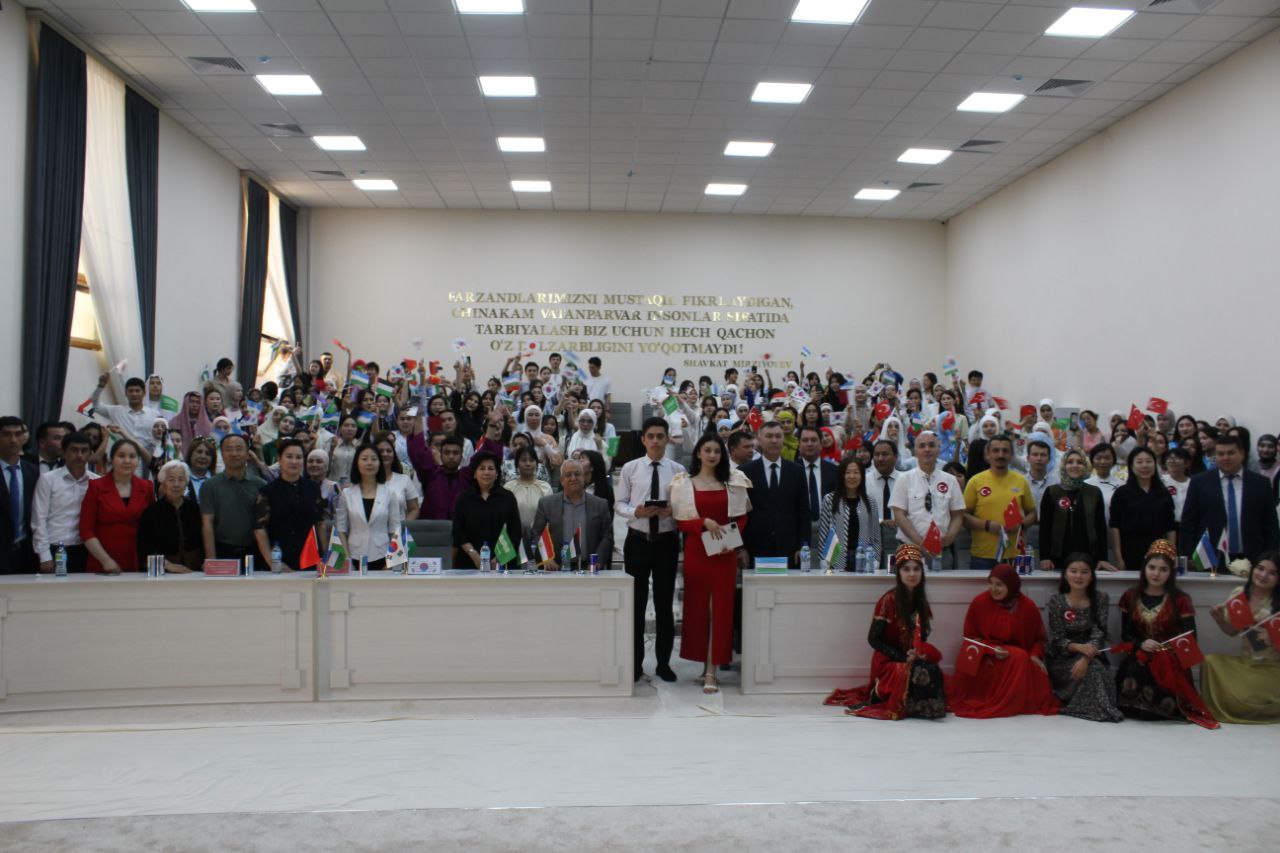2024-05-07 07-44
Today, on May 5, 2024, the Oriental Philology Faculty of UzSWLU proudly hosted its inaugural "Festival of Oriental Languages." This festival marks a significant milestone in Uzbekistan's educational landscape, aligning with the State programs aimed at enhancing education quality, attracting skilled educators, and fostering public interest in learning foreign languages.
In accordance with the President's decision on May 19, 2021, which outlined measures to elevate the promotion of foreign language learning, a comprehensive educational framework "Kindergarten-school-higher education organization-enterprise" was established. This framework encompasses a diverse range of languages such as English, German, French, Italian, Spanish, Arabic, Chinese, Korean, Japanese, Turkish, Persian, Malay, Urdu, Pashto, Dari, and Hindi, fostering a continuum of language education.
At the Oriental Philology Faculty, approximately 2,000 students are enrolled in full-time and evening courses focusing on Korean, Chinese, Japanese, Arabic, and Turkish languages. The faculty boasts a dedicated team of over 100 local and 20 foreign professors across five departments: Korean philology, Chinese philology, Japanese philology, Uzbek language and literature, and World literature.
Through active collaboration with various embassies and organizations, including those of China, South Korea, Japan, Turkey, Algeria, the United Arab Emirates, and Egypt, alongside partnerships with KOICA, JICA, and China's National Cultural Center, the university facilitates opportunities for students to enhance their qualifications abroad.
The festival, brimming with enthusiasm, was divided into three segments:
1. Exhibitions and culinary delights representing each language's culture.
2. Screenings of sports games from countries where the languages are studied, adding a fun element to the festivities.
3. Engaging performances by students, showcasing the rich culture, art, and history embedded within the languages taught at the university.
This event underscored that students aren't just learning languages but delving into the intricate tapestry of culture, art, and history represented by these languages. It is hoped that such festivals will not only inspire students but also ignite curiosity among schoolchildren, fostering a broader appreciation for Eastern languages in Uzbekistan.
Heartfelt thanks are extended to the professors, teachers, and students who orchestrated this successful festival. Looking ahead, the university aims to organize more such events to further promote Eastern languages and nurture growing interest in them across Uzbekistan.











